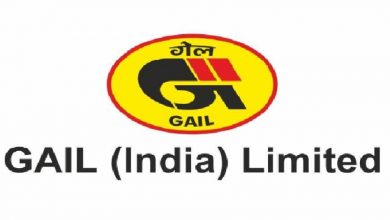As Per SC Judgement, If Government Employees Have To Be At Disposal Of Government All Time, Why Guaranteed Pension Is Denied To Them
Pension is a fundamental right of any Government employee, opines C. Srikumar, General Secretary of AIDEF

Image Courtesy : TAX GURU
OPINION PIECE
The Supreme Court has recently held that Government employees are at the disposal of the Government which pays him and he may be employed in any manner required by proper authority without claim for additional remuneration.
Rejecting a plea of the supervisory staff of Security Printing and Mining Corporation of India for payment of overtime wages at double the rate under section 59 of the Factories Act 1948 the Supreme court has made the above observation in their judgment quoting Rule 11 of Fundamental Rules framed by the Government for its employees.
In Central Government only the Ordnance Factories were deploying employees on overtime to complete their production target till Corporatization of Ordnance Factories. Post Corporatization of Ordnance Factories deployment of Overtime was stopped in many of the Ordnance Factories.
Only few factories under AVNL and MIL were working overtime. The supervisory staff of Ordnance Factories namely Chargeman were given overtime wages on the basis of section 64 of the Factories Act 1948.
After this Supreme Court judgment discussions are going on about the deployment of Supervisory Staff on overtime in the Industrial Establishments under Railways, Ordnance Factories, Naval dockyards etc.
C. Srikumar, General Secretary, All India Defence Employees Federation said that the Supreme Court quoting the fundamental rule has stated that the Government employees are at the disposal of the Government 24 hours, which means that as a Government employees he has to depend only on the payment what he gets from the Government. He cannot do any other job after his office hours for earning additional income to meet his and his family’s requirements. This is the major reason why the Government employees were entitled for Defined and Guaranteed Pension after their retirement. Their lifetime earnings are generally spent for children education, their marriages and for purchasing a plot or a flat etc., After meeting all these expenditure generally at the Group ‘C’ and Group ‘B’ level employees nothing is left behind during their retirement.
He said that therefore, to have a decent and dignified retired life the Government employees were given pension after retirement. This is the reason why the Supreme Court has ruled that pension is not a bounty, gift, ex – gratia payment etc., Pension is a fundamental right of any Government employee. Therefore since the Supreme Court has stated that the Government employees are all time at the disposal of the Government, then it is automatic that it is the duty of the Government to ensure its employees a defined and guaranteed pension and that is why we are fighting for scrapping the no guarantee NPS and restoration of Old Pension Scheme.
Srikumar adds that as regards the judgment on overtime the persons holding position of supervision or management are also entitled for overtime wages under section 64 of the Factories Act 1948. Only thing required is that the State Government has to assess the nature of duty of the so called supervisory staff and if the Chief Inspector of the Factory is of the view that the supervisory staff in a particular unit is performing the duty of a worker as defined under section 2 of the Factories Act then he can be deployed on overtime and is entitled for double the wages under Section 59 of the Factories Act 1948. Apart from this even in accordance with various Supreme Courts judgments Statutory Rules like Factories Act 1948 cannot be over ridden by the executive orders and no executive orders can be issued which are inconsistent with the statutory rules already framed.
Moreover , Government employees if they are working in an “Industry” are governed under the ID Act 1947 and if they are working in a “Factory” then they are governed under Factories Act 1947. Therefore, the present Supreme Court Judgment cannot be generalized and it is pertaining to the concerned parties in the case, According to the Supreme Court they are holding the position of Supervisor in conformity with the Maharashtra State Government’s Rules. The respondents should have taken pain to establish before the Chief Inspector of Factories Maharashtra that by designation they may be called Supervisors but their nature of duty is equal to that of a worker under the Factories Act 1948 then they must have been entitled for OT wages under Section 59 of the Factories Act 1948. This is my initial observation. However, the Supreme Court judgment have to be studied in depth and consultations are required to be made with legal experts in the matter, concluded C. Srikumar.
Views expressed here are those of C. Srikumar, senior trade union leader and General Secretary of AIDEF




